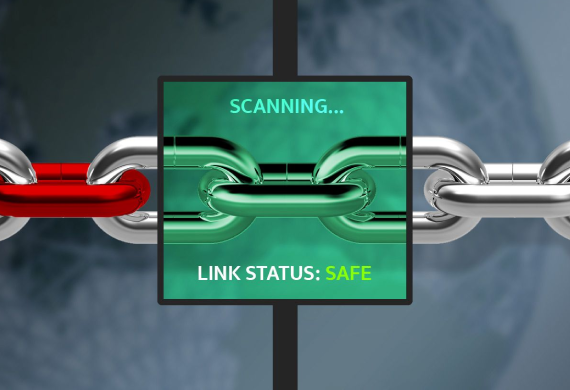What Is A Website Security Audit? (Link Security)
If you are in charge of a website or have any sort of web presence, then there is every reason to be worried about hidden vulnerabilities that may see you getting hacked. Luckily, most, if not all, of your fears can be eliminated with regular and structured website audits with a focus on link scanning for viruses and configuration.
What Does It Mean to Audit A Website and scan Your Links?

A website audit simply involves going over all the components and policies in your website and seeing to it that everything is properly set up and that there are no vulnerabilities. Depending on how you have set your website up, an audit can involve scanning links for viruses, checking your database configuration and policies, checking the plugins and scripts, basic vulnerability testing, server configuration audit, among other activities.
If conducted well, a comprehensive or basic website audit should have an audit report and recommend fixes as deliverables. It is recommended that you schedule a website security audit just before launching it online and at regular intervals.
For security-sensitive websites and applications such as E-commerce and online banking portals, a comprehensive audit should be carried out much more frequently. However, simple websites such as personal blogs and info-websites can be audited every few months or when there is an update depending on your budget and needs.
What Does A Website Audit Entail?
There are many things that can be included in a comprehensive website audit. Here are some of the most important ones:
1. URL/Internal Link Audit and Virus Scanning
URL or links are the addresses used to interlink content within your website and to the rest to the web. These links can pose a great danger to your website, especially if there are no URL rewrite rules, and if there are external links on website comment sections and forums.
Sometimes hackers will take control of your links and use your website to redirect visitors to malicious websites. The audit should check that all the links on your website are secure and link to safe websites or pages. It might also involve scan link for virus and other link validation activities. Url audits are usually automated.
2. Backend Database Auditing
A non-static website will almost always have some kind of database that is holding all the data needed for various elements to be loaded. Databases are often the biggest target when it comes to direct and well-organized hacking activities. For a backend database audit, the following questions could be asked as part of the audit process:
- What kind of databases is being used for your website?
- Are there any known vulnerabilities for the database in use?
- Is the backend database updated to the latest version or have all security updates installed?
- Is the database secured with strong passwords?
- Is the database encrypted and if not why?
- What kind of access is enabled for all types of users?
- Is logging enabled and if yes, where and how are the logs stored?
- Is input validation and control used on all queries and scripts that have access to the database?
A website backed database audit is, perhaps, the most important part of securing your website. Vulnerabilities such as lack of input validation and access control could open your website to SQL injection attacks that often mean losing all your data to malicious entities.
3. Dynamic and Static Code Analysis
Code analysis involves going over all the code used in your website to find points of weakness that could be exploited. This is a meticulous audit that requires the use of advanced analysis tools expertise. In the end, a report documenting clean and vulnerable code will be compiled and the necessary fixes recommended or applied.
Code analysis also included going over complementary scripts that are used on your website to find foreign or malicious snippets usually used for XSS attacks. The professional audit team will use a mix of automated code analysis tools and manual reviews.
4. Configuration Audit
A configuration audit goes over all the configurations currently applied on your website with particular focus to server and website configuration. Bad configurations are normally the most dangerous vulnerability for any website.
Many other activities could be included in a comprehensive website audit depending on how it is set up and the environment. Always go over a needs assessment with the audit team to understand what needs to be done and what to expect at the end of the audit.





